According to Allah (swt), Shaitan will attempt to deceive and tempt the children of Adam by whispering to them and encouraging them to disobey Allah and worship other gods. It is essential to be vigilant and aware of this scheme in order to guard against it. This book, compiled from the writings of Imam Ibn Al-Qayim Al-Jawziyah and Imam Muwafaq Udeen Ibn Qudaam Al-Hanbali, delves into the topic of Shaitan's whispers and their portrayal in the Qur'an and Sunnah, providing a thorough and objective understanding.
Waswasah - The whispering Of Shaitan
Waswasah - The whispering Of Shaitan
Publisher:
Al Firdous LTD
Author:
Imam Ibn Qayyim Al-Juwiyyah
Language:
English
Binding:
Paper back
Pages: 94
Size: A5 |5.8 x 8.3 in| 14.8x 21 cm
Couldn't load pickup availability

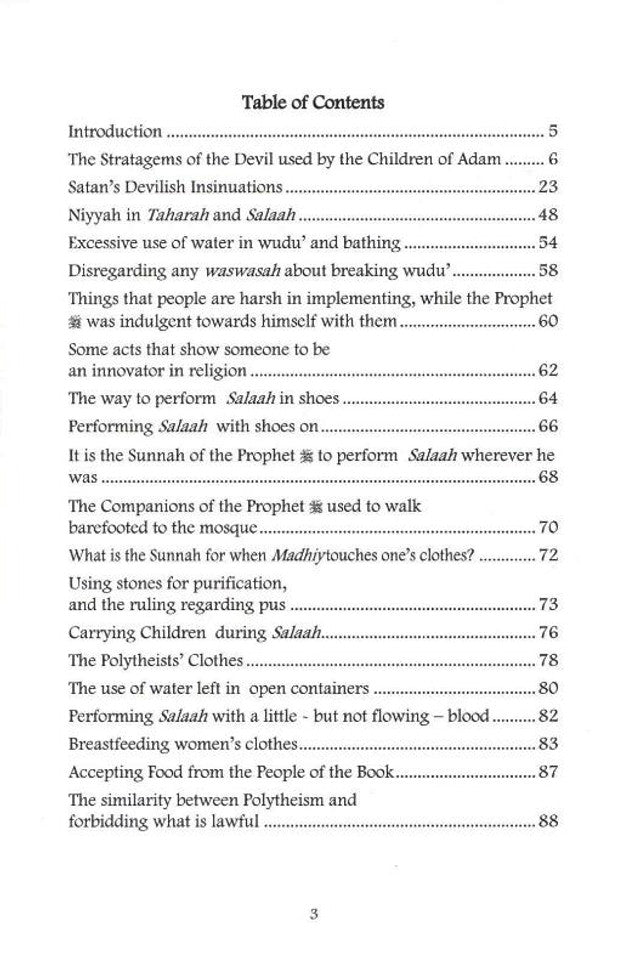
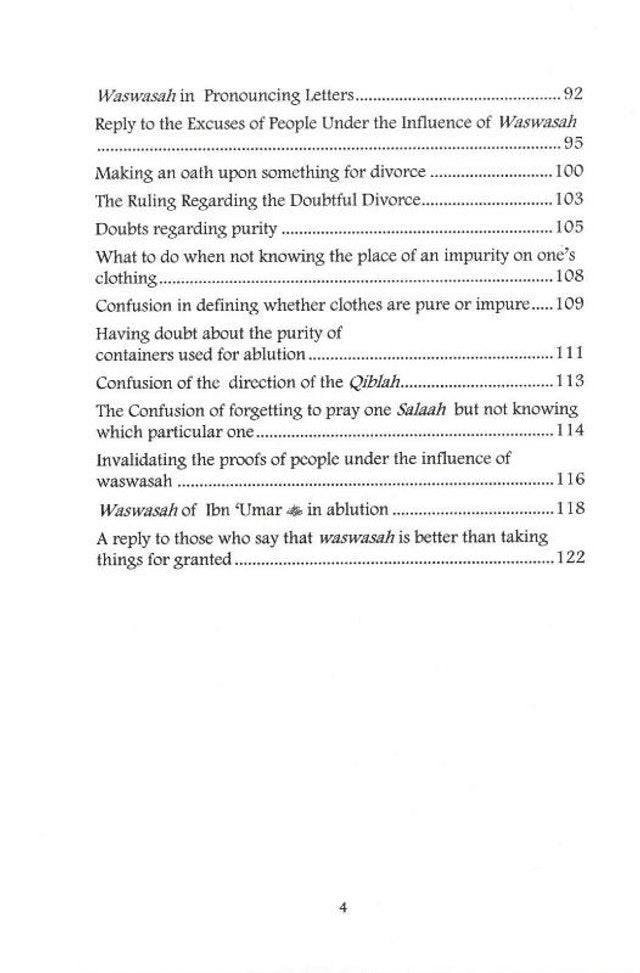
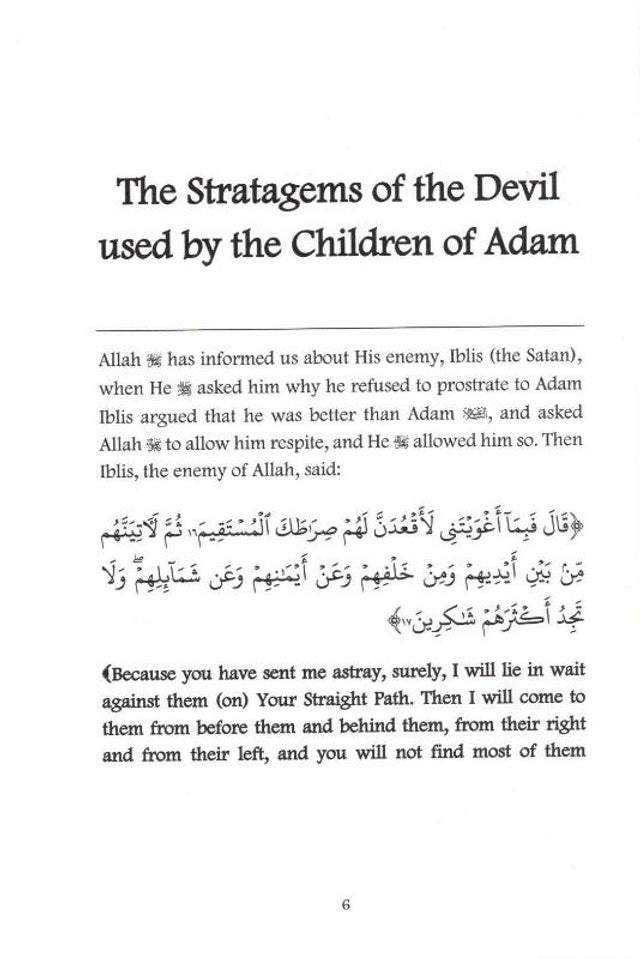
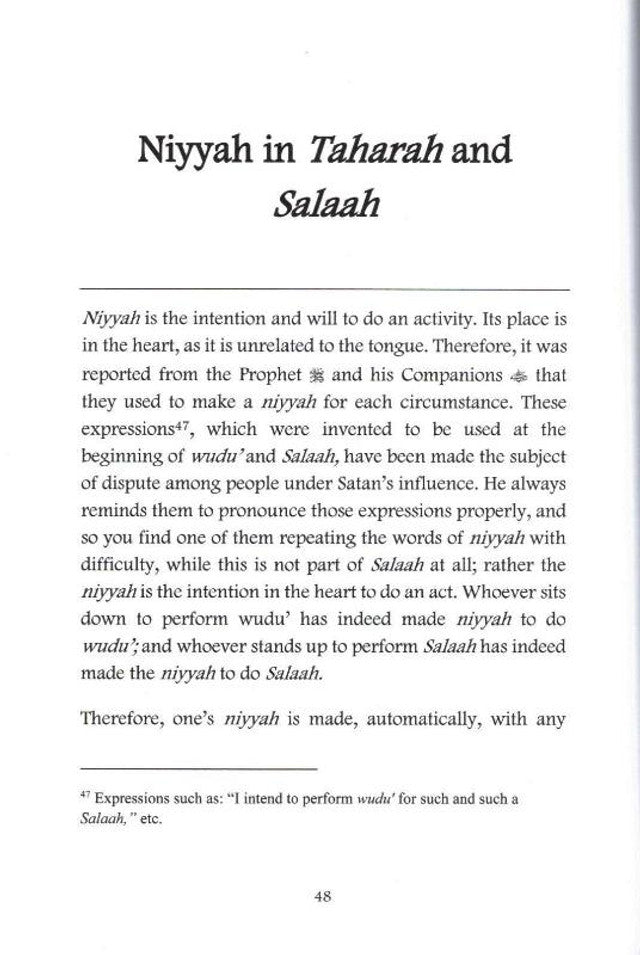
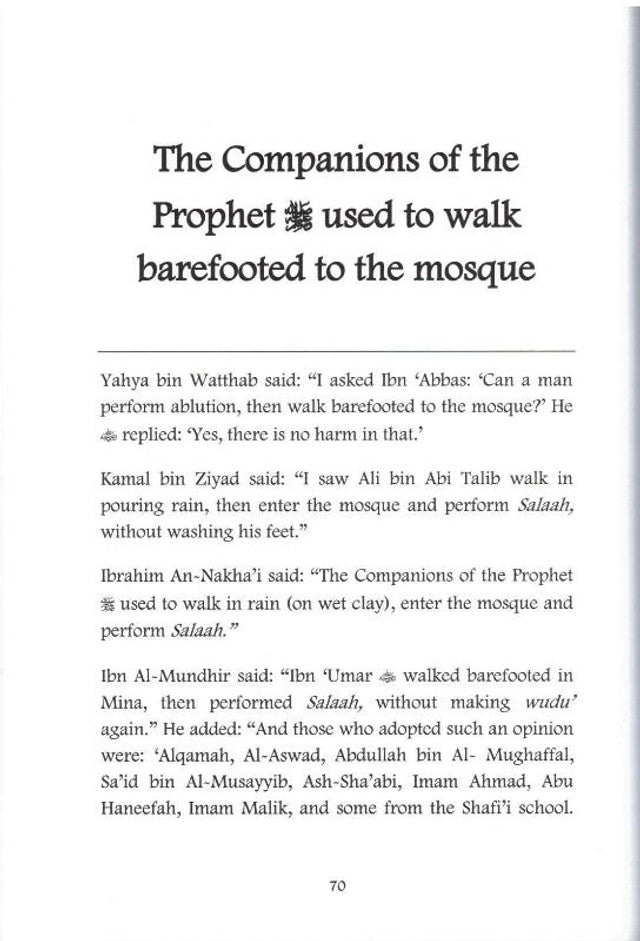
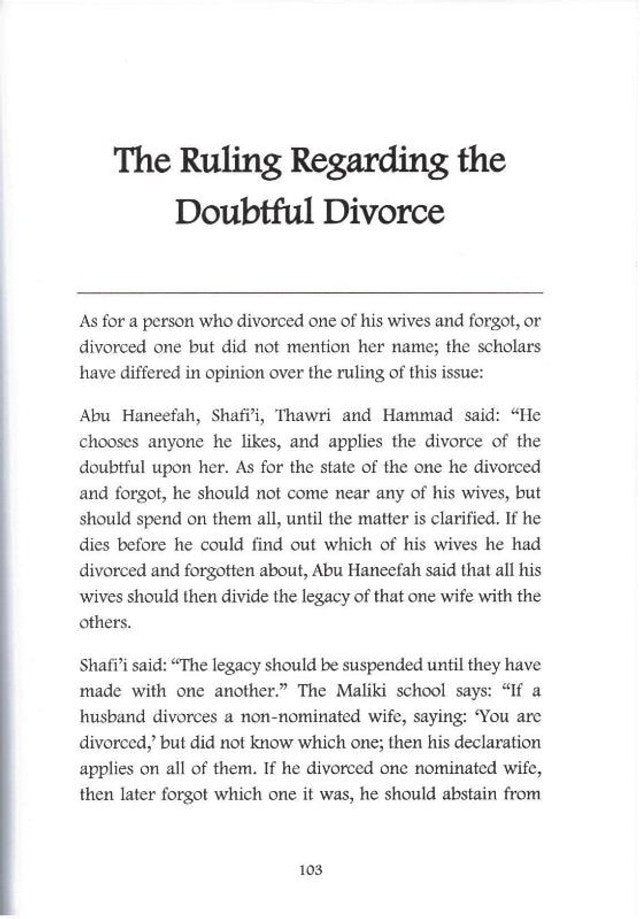
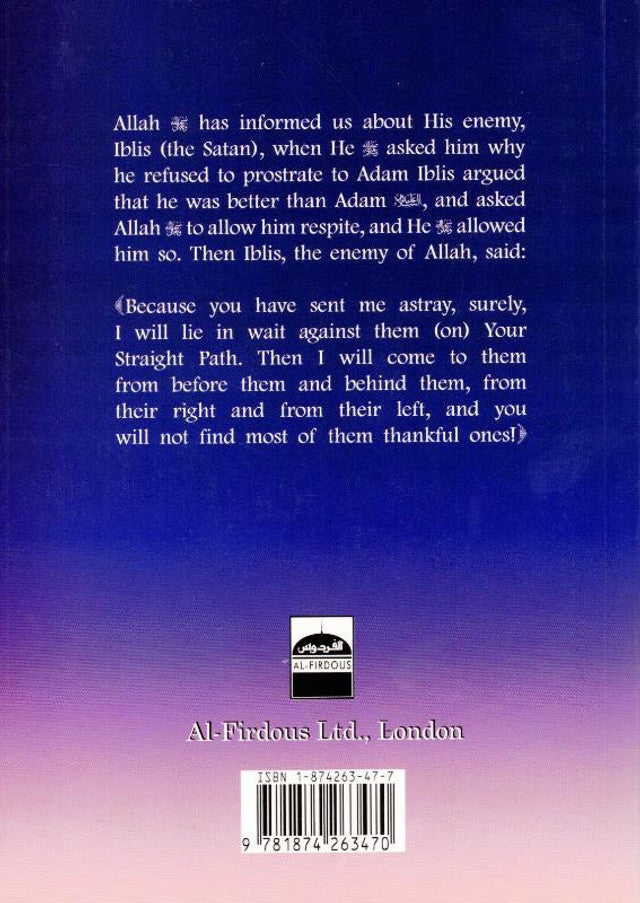
Collapsible content
Description of Book
Publisher
Al Firdous LTD
Author
- Imam Ibn Qayyim Al-Juwiyyah
Sample Pages - Content
WASWASAH The Whispering Of The SHAIPAN Al-Mu'awwidhatayn Imam Ibn Qayyim Al-Juziyyah Muwafaq Deen bin Qudaam Al-Hanbali Introduction. Table of Contents 5 The Stratagems of the Devil used by the Children of Adam...... 6 Satan's Devilish Insinuations. 23 Niyyah in Taharah and Salaah. 48 Excessive use of water in wudu' and bathing. .54 Disregarding any waswasah about breaking wudu'. 58 Things that people are harsh in implementing, while the Prophet was indulgent towards himself with them 60 Some acts that show someone to be an innovator in religion The way to perform Salaah in shoes. Performing Salaah with shoes on It is the Sunnah of the Prophet to perform Salaah wherever he 62 64 66 was..... 68 The Companions of the Prophet used to walk barefooted to the mosque.... 70 What is the Sunnah for when Madhiytouches one's clothes? 72 Using stones for purification, and the ruling regarding pus 73 Carrying Children during Salaah.. 76 The Polytheists' Clothes 78 The use of water left in open containers Performing Salaah with a little - but not flowing - blood. Breastfeeding women's clothes. 80 82 83 87 Accepting Food from the People of the Book. The similarity between Polytheism and forbidding what is lawful 3 88+Waswasah in Pronouncing Letters.. .92 Reply to the Excuses of People Under the Influence of Waswasah .95 Making an oath upon something for divorce. 100 The Ruling Regarding the Doubtful Divorce...... .103 Doubts regarding purity 105 What to do when not knowing the place of an impurity on one's clothing....... .108 Confusion in defining whether clothes are pure or impure..... 109 Having doubt about the purity of containers used for ablution. 111 Confusion of the direction of the Qiblah.. 113 The Confusion of forgetting to pray one Salaah but not knowing .114 which particular one. Invalidating the proofs of people under the influence of waswasah Waswasah of Ibn 'Umar in ablution .116 118 A reply to those who say that waswasah is better than taking things for granted.. 122 4The Stratagems of the Devil used by the Children of Adam Allah has informed us about His enemy, Iblis (the Satan), when He asked him why he refused to prostrate to Adam Iblis argued that he was better than Adam, and asked Allah 3 to allow him respite, and He allowed him so. Then Iblis, the enemy of Allah, said: قَالَ فَبِمَا أَغْوَيْتَنِي لَأَقْعُدَنَّ لَهُمْ صِرَاطَكَ الْمُسْتَقِيمَ ثُمَّ لَا تِيَنَّهُم مِنْ بَيْنِ أَيْدِيهِمْ وَمِنْ خَلْفِهِمْ وَعَنْ أَيْمَنِهِمْ وَعَن شَمَابِلِهِمْ وَلَا تَجِدُ أَكْثَرَهُمْ شَكِرِينَ) (Because you have sent me astray, surely, I will lie in wait against them (on) Your Straight Path. Then I will come to them from before them and behind them, from their right and from their left, and you will not find most of them 6Niyyah in Taharah and Salaah Niyyah is the intention and will to do an activity. Its place is in the heart, as it is unrelated to the tongue. Therefore, it was reported from the Prophet and his Companions that they used to make a niyyah for each circumstance. These expressions47, which were invented to be used at the beginning of wudu' and Salaah, have been made the subject of dispute among people under Satan's influence. He always reminds them to pronounce those expressions properly, and so you find one of them repeating the words of niyyah with difficulty, while this is not part of Salaah at all; rather the niyyah is the intention in the heart to do an act. Whoever sits down to perform wudu' has indeed made niyyah to do wudu'; and whoever stands up to perform Salaah has indeed made the niyyah to do Salaah. Therefore, one's niyyah is made, automatically, with any * Expressions such as: "I intend to perform wudu' for such and such a Salaah," etc. 48The Companions of the Prophet used to walk barefooted to the mosque Yahya bin Watthab said: "I asked Ibn 'Abbas: 'Can a man perform ablution, then walk barefooted to the mosque?' He replied: 'Yes, there is no harm in that.' Kamal bin Ziyad said: "I saw Ali bin Abi Talib walk in pouring rain, then enter the mosque and perform Salaah, without washing his feet." Ibrahim An-Nakha'i said: "The Companions of the Prophet used to walk in rain (on wet clay), enter the mosque and perform Salaah." Ibn Al-Mundhir said: "Ibn 'Umar walked barefooted in Mina, then performed Salaah, without making wudu' again." He added: "And those who adopted such an opinion were: 'Alqamah, Al-Aswad, Abdullah bin Al- Mughaffal, Sa'id bin Al-Musayyib, Ash-Sha'abi, Imam Ahmad, Abu Haneefah, Imam Malik, and some from the Shafi'i school. 70 70The Ruling Regarding the Doubtful Divorce As for a person who divorced one of his wives and forgot, or divorced one but did not mention her name; the scholars have differed in opinion over the ruling of this issue: Abu Haneefah, Shafi'i, Thawri and Hammad said: "He chooses anyone he likes, and applies the divorce of the doubtful upon her. As for the state of the one he divorced and forgot, he should not come near any of his wives, but should spend on them all, until the matter is clarified. If he dies before he could find out which of his wives he had divorced and forgotten about, Abu Haneefah said that all his wives should then divide the legacy of that one wife with the others. Shafi'i said: "The legacy should be suspended until they have made with one another." The Maliki school says: "If a husband divorces a non-nominated wife, saying: 'You are divorced,' but did not know which one; then his declaration applies on all of them. If he divorced one nominated wife, then later forgot which one it was, he should abstain from 103Allah has informed us about His enemy, Iblis (the Satan), when He asked him why he refused to prostrate to Adam Iblis argued that he was better than Adam, and asked Allah to allow him respite, and He allowed him so. Then Iblis, the enemy of Allah, said: (Because you have sent me astray, surely, I will lie in wait against them (on) Your Straight Path. Then I will come to them from before them and behind them, from their right and from their left, and you will not find most of them thankful ones! الفردوس AL-FIRDOUS Al-Firdous Ltd., London ISBN 1-874263-47-7 9 781874 263470
Who is Imam IbnQayyim al-Jawziyyah?
Imam Ibn Qayyim al-Jawziyyah (1292–1350 CE) was a renowned Islamic scholar, jurist, and theologian, deeply respected for his works on spirituality, ethics, and Islamic jurisprudence. A prominent student of Ibn Taymiyyah, he emphasized returning to the Quran and Sunnah to understand faith and improve personal character. His works, such as Madarij as-Salikin (Ranks of the Seekers) and Zad al-Ma’ad (Provisions for the Hereafter), explore purification of the soul, human psychology, and devotion. Known for his deep reflections on the human heart and closeness to Allah, Ibn al-Qayyim’s legacy continues to guide Muslims toward sincerity, patience, and inner peace.








